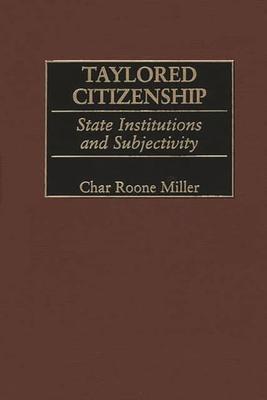Miller shows how government institutions changed the meaning of American citizenship during the World War II era. He considers the state's role in creating concepts of citizenship and subjectivity by analyzing the application within military and educational institutions of systems of discipline associated with Frederick W. Taylor and scientific management.
Miller also explores a neglected aspect of Michel Foucault's concerns about citizenship and subjectivity when examining the power of institutions and bureaucracies in creating and precluding political identities. Of particular interest to scholars and students involved with American political history and theory and the sociology of work/education/war and conflict.
Book
Taylored Citizenship: State Institutions and Subjectivity
(Write a Review)
Hardcover
$105.56
Miller shows how government institutions changed the meaning of American citizenship during the World War II era. He considers the state's role in creating concepts of citizenship and subjectivity by analyzing the application within military and educational institutions of systems of discipline associated with Frederick W. Taylor and scientific management.
Miller also explores a neglected aspect of Michel Foucault's concerns about citizenship and subjectivity when examining the power of institutions and bureaucracies in creating and precluding political identities. Of particular interest to scholars and students involved with American political history and theory and the sociology of work/education/war and conflict.Hardcover
$105.56